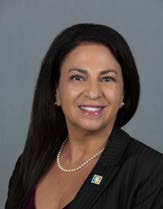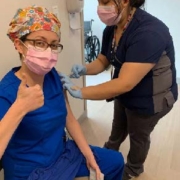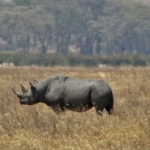Vaccine Vigilence

by Dr. Corin DeChirico, Vice President of Medical Staff and Chief Medical Officer for Healthcare Network
If you have been in the first group to receive the vaccine, it’s important to know what to do after being vaccinated. The vaccines offer hope, but do not mean the virus can’t still affect you and others.
Until health officials say otherwise, everyone needs to continue with precautions. Avoid crowds. Wear a good mask in public. Maintain six feet or more of distance from people outside your household. Frequently wash your hands.
These steps are important to protect the vulnerable, such as those with cancer or others who cannot or have not received the vaccine. People with cancer are more likely than others to become infected and die from the virus. The vaccine may not protect these people.
Cancer treatments often weaken the immune system, making it harder to fight off diseases. Getting theCOVID-19 vaccination will help protect you from getting severe COVID-19infections.
It’s important to note that more contagious variants of the virus have been circulating worldwide. So far, officials believe the vaccines will protect against these, but more studies are needed.
Generally, experts believe people will reach immunity within five to six weeks of receiving the first shot if they get both injections. Between shots, people can still be infected and become contagious. Also, most vaccines, including flu shots, prevent people from becoming sick. They do not protect from becoming infected and passing a virus to others.
With other vaccines, it is possible to still spread disease because your immune system may not fight off the virus completely. Studies are still being done to learn how long protection lasts after the shots or if booster shots will be needed.
 According to the Centers for Disease Control (CDC): “We won’t know how long immunity produced by vaccination lasts until we have more data on how well the vaccines work. It will be important for everyone to continue using all the tools available to help stop this pandemic. Think of the vaccine as another layer of protection in addition to physical distancing and masks.”
According to the Centers for Disease Control (CDC): “We won’t know how long immunity produced by vaccination lasts until we have more data on how well the vaccines work. It will be important for everyone to continue using all the tools available to help stop this pandemic. Think of the vaccine as another layer of protection in addition to physical distancing and masks.”
Health officials are not certain how long it will take to achieve herd immunity and stop the spread of the virus. Herd immunity means that enough people are protected from getting the virus and spreading it because they’ve already had it, or they’ve been vaccinated. Herd immunity even protects those who cannot be vaccinated, like newborns. Some experts estimate this may not happen until later in 2021 or even 2022. In addition, it will take many months before a sizable part of the population is able to be vaccinated. In the meantime, precautions continue to remain essential to reducing deaths and the impact of the virus, even for those vaccinated.
Dr. Corin DeChirico is vice president of medical staff and chief medical officer for Healthcare Network. For information on Healthcare Network’s COVID-19 efforts, visit https://healthcareswfl.org/.




Leave a Reply
Want to join the discussion?Feel free to contribute!